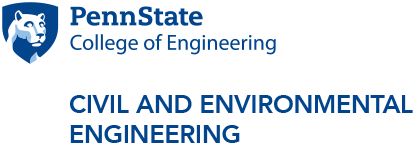WARR: The Origin and Fate of Volcanic Sediments in Fluvial Systems
Biography: Dr. Karen Gran is a professor in Earth & Environmental Sciences at the University of Minnesota Duluth. Her research in fluvial geomorphology focuses on how rivers respond to change, from volcanic eruptions to continental glaciation to anthropogenic land use changes. She obtained a B.A. in geology from Carleton College, an M.S. in geology from the University of Minnesota, and a Ph.D. from the University of Washington.
Abstract: Major explosive eruptions can deposit significant volumes of sediment on the flanks of volcanoes, impacting downstream rivers for decades following the eruption. At Mount Pinatubo, Philippines, river valleys filled with pyroclastic flow deposits, providing a rich source of sediment downstream following a major eruption in 1991. We studied channel recovery and evolution for two decades following the eruption, tracking sediment-laden channels as lahars ceased and normal fluvial processes were finally able to process and rework the channel bed. The complex interactions between high sand loads and the mix of pumice and lithic gravels led to real-time channel evolution including the development of downstream fining and channel concavity, bed coarsening, and seasonally-mediated shifts in channel planform. Comparisons of long-term fluvial recovery from Pinatubo and the similarly-impacted North Fork Toutle River at Mount St. Helens show that after an initial exponential decay period, sediment loads can remain much higher than pre-eruption loads for decades, driven by continued channel instability within the braidplain. These eruptions offer a unique look into how rivers process high volumes of sand-rich sediment potentially providing insight into river recovery following landslides, dam removals, or other extreme sediment-producing events.
Biography: Dr. Allison Pfeiffer is a fluvial geomorphologist who uses field observations, remote sensing, and numerical modeling to explore questions related to gravel bedded river morphology, coarse sediment supply, and channel response to disturbance. Dr. Pfeiffer is an Assistant Professor in the Department of Geology at Western Washington University. She holds a B.A in Geology from Carleton College, a Ph.D. in Earth and Planetary Sciences from U.C. Santa Cruz, and trained as a postdoc at the University of Washington.
Abstract: Stratovolcanoes produce large volumes of rock of widely varying strength and density. Though these volcanoes dominate sediment budgets in many regions, the importance of volcanic clast heterogeneity in source-to-sink pathways has received little attention. The Suiattle River, which drains Glacier Peak stratovolcano in the North Cascades of Washington State (USA), is subject to frequent debris flows of varying magnitude. These events contribute large volumes of material that vary widely in grain size, density, and clast strength. Rapid downstream strengthening of river bar sediment and a preferential loss of weak, low-density vesicular volcanic clasts relative to non-vesicular ones suggest that abrasion is extremely effective in this system. However, the standard exponential model for downstream abrasion, using single-lithology abrasion rates, fails to reproduce observed downstream patterns in lithology and clast strength. Incorporating heterogeneity in source material strength as well as transport rate-dependent abrasion largely resolves this failure. Thus, bed material abrasion is a major control on the partitioning of basin-scale sediment fluxes between coarse and fine material in the Suiattle and helps explain the anomalously high fine sediment load.
Additional Information:
Register online to attend.
Event Contact: Li Li



